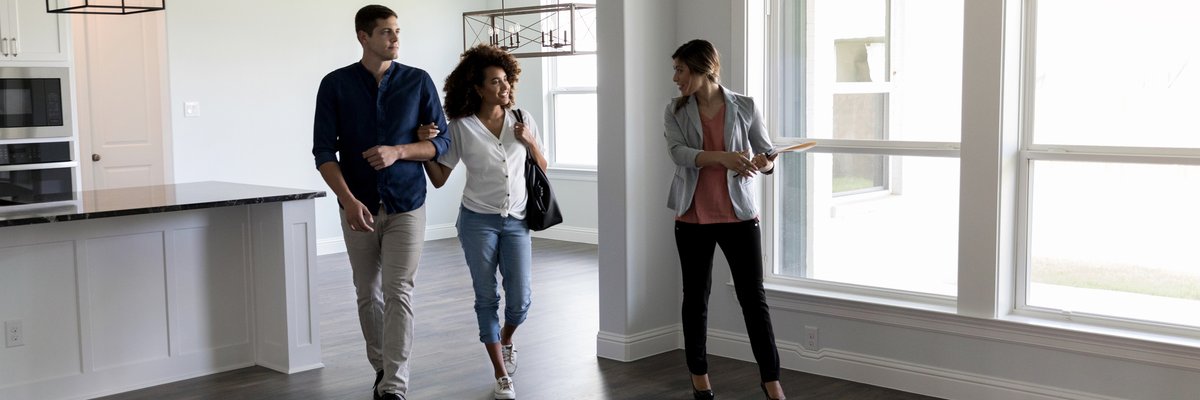5 Mortgage Mistakes That Could Be Costing You a Fortune
KEY POINTS
- The higher your credit score, the better your chances of getting a competitive mortgage rate.
- Aim to put some amount of money down for a home purchase -- if 20% is out of reach, try for 5% to 10%.
- Run your own numbers to decide how much you want to spend for a home.
Want to buy a house? It's not the easiest time to do that, thanks to higher home prices, fewer homes for sale, and higher mortgage rates than we've seen in several years. Even under the best of circumstances, becoming a homeowner isn't cheap.
Here are five mistakes you'll want to avoid if you're dreaming of getting keys to your very own home.
1. Ignoring your credit score
Once you're seriously considering buying a home, it's time to dig into your credit profile. Check your credit score -- 620 is commonly the lowest acceptable credit score for a conventional loan (government-backed loans often have more lenient requirements). But the higher your score, the better your chances of securing a lower mortgage rate.
Get copies of your credit reports from the three major credit bureaus. If you find errors on those reports, you can have them removed, which will boost your credit score.
Beyond that, consider paying down existing debt, if possible, and otherwise leave your credit alone. Don't apply for new credit cards or loans, and do your best to show lenders that you're capable of managing a mortgage by paying all your bills on time every month.
2. Not shopping around for loans
You might assume that you only need to talk to one mortgage lender when buying a home. But not taking the time to shop around for pre-approvals could cost you quite a bit. As of this writing, the average rate for a 30-year mortgage is 6.49%. But different lenders have different rates -- and each weighs risk differently when deciding whether to approve a potential borrower.
Contact at least a handful of lenders, and do it within a 14-day window to minimize the hit to your credit score. Consider online lenders along with local banks and credit unions. You never know when there's a deal to be found -- or a loan program you qualify for that could save you money.
3. Making a low down payment
It's commonly recommended that you make a 20% down payment on a conventional mortgage. The reason for this is to avoid having to pay for private mortgage insurance, which will add to your costs. But you can get a conventional loan for less money down -- perhaps as little as 3%, depending on your credit score.
However, there are government-backed mortgages, like FHA loans, that require smaller down payments. If you have a credit score of at least 580, you can put just 3.5% down for an FHA loan, while VA loans (for current and former service members) don't have a down payment requirement at all.
That said, it's a good idea to put some sizable amount of money down for a home purchase. You're more likely to get approved since lenders will see you as less risky (you'll have some skin in the game, so to speak).
If 20% is impossible, can you aim for 5% to 10%? According to the National Association of Realtors, the average down payment for first-time buyers was 8% in 2022.
4. Trusting the lender's assessment of what you can afford
When you apply for pre-approval with mortgage lenders, they will likely generate an estimate of how much house you can afford, based on your income and other factors. But a lender doesn't know the entirety of your finances and how you like to spend your money.
For one thing, resist the urge to commit more than 30% of your income to housing every month; that could prove to be disastrous should something change with your finances. And for another, don't let the money you spend on a home keep you from living your life, traveling, and pursuing your passions. Make your own home-buying budget to reach the right price range for you, regardless of what the lender tells you.
5. Forgetting about all your other costs
Finally, it's important to consider the entire cost of buying and owning a home -- beyond just the down payment and monthly mortgage payment. Some of those costs will likely be added to your monthly payments, such as property taxes and homeowners insurance. If you buy a home under the purview of a homeowners association (HOA), those dues might be added, too.
But this doesn't come close to covering all the expenses of homeownership. You'll be responsible for maintenance and repairs on your home, and unless the house is perfectly to your taste when you move in, you may want to make changes like painting and more complicated remodeling. Plus, you'll need to cover the costs of moving, which could be significant, depending on how far you're going and how many belongings you have.
Becoming a homeowner isn't cheap, but by avoiding these mistakes, you may be able to keep your costs in check. Happy house hunting!
Our Research Expert




